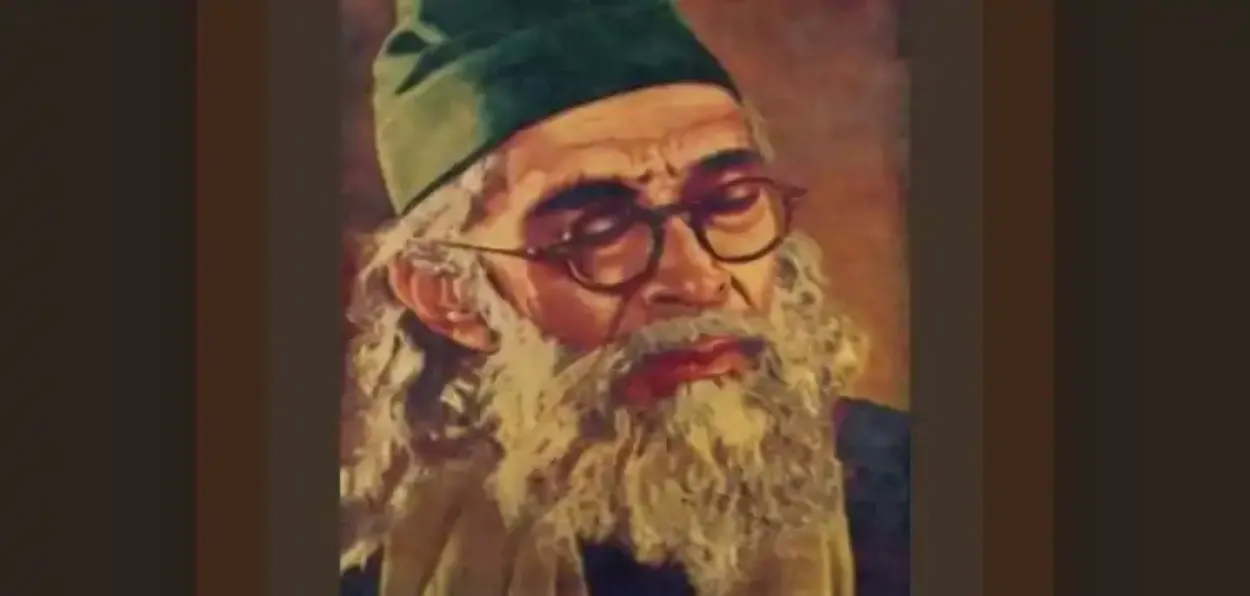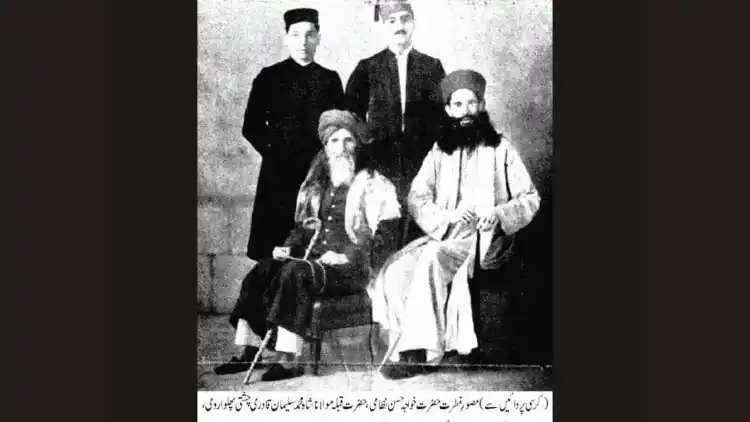
Saquib Salim
“In the greatness of Sri Krishna, lies the greatness of India. The belief that Sri Krishna was an avatar and author of the Gita, brings honourto the Indians. Don’t try to damage his position.” Khwaja Hasan Nizami, an Islamic scholar from pre-partition India, wrote these words in his famous Urdu book Krishna Katha, a biography of Lord Sri Krishna.
75 years after gaining independence from the colonial masters it is unthinkable for most of us that a Muslim, let alone an Islamic scholar, would heap praises upon Sri Krishna, a Hindu god. In the days before the colonial divide and rule policy would reach its zenith during the partition, for centuries, Muslims eulogized Hindu gods and goddesses in their poetries.
Poetry in praise of Sri Krishna by Raskhan, a 16th-century Muslim poet, is still recited across the country. Insha Allah Khan Insha, Hasrat Mohani, Hafiz Jalandhari, and Nazeer Akbarabadi are some of the prominent Muslim poets who have eulogized Sri Krishna in their writings. Many Muslim women like Raihana Tayyabji also wrote in praise of the Hindu god. There is a tradition of respecting Sri Krishna as a philosopher, warrior, and saint by Muslims.
When India was struggling for freedom, Muslim thinkers looked towards Sri Krishna, and his teachings, as a source of inspiration. The stress was laid upon learning from the indigenous traditions and creating a national unity. Popular Urdu poet and Muslim thinker of the early 20th century, Muhammad Iqbal writes:
Ye Aaya-e-Nau, Jail Se Nazil Huwi Mujh Par
Gita Mein Hai Quran To Quran Mein Geeta
(This new ‘verse’ was revealed to me from the jail that the Quran is in the Gita and the Gita is in the Quran)
Khwaja Hasan Nizami, in 1917, published, Krishna Beeti later reprinted as Krishna Katha, a biography of Sri Krishna. Nizami wrote the book to dispel the misconceptions among Muslims in particular and Indians in general, regarding the life and character of Sri Krishna. At the very outset, he described Sri Krishna as a great man, who, through his life taught Indians the secrets of the spiritual and material world. In his opinion,
Sri Krishna was a human being but a godly human like a messengers of Allah, in whom Muslims do believe. It is the duty of a Muslim, according to Nizami, to respect and propagate the ideas of wise people, no matter what religion they belong to.
Nizami argued that there were prevalent misconceptions regarding Sri Krishna. The popular culture had portrayed him in a vulgar, light, and colonial powers wanted to benefit from this narrative. The people should read about Sri Krishna, he argued, without prejudice. The teachings of Sri Krishna should not be learned from the books published by the western educated writers but from the Hindus of India.
 Khwaja Hasan Nizami with Allama Iqbal and other poets (Courtesy Twitter of Indian Muslim History)
Khwaja Hasan Nizami with Allama Iqbal and other poets (Courtesy Twitter of Indian Muslim History)
His teachings are in the hearts of all Indians. The propaganda of colonial rulers and their stooges that Hindus did not have a civilization was a sham. The ancient living civilization had survived the test of time. Like Iqbal, Nizami compared India with Greek, Roman, and Egyptian civilizations to make atiquity. The ‘inferiority’ of the Hindus was a colonial propaganda to justify their inhuman imperialism.
Nizami further argued that he did not write the book as a Hindu but as an Indian. He identified himself as a devout Muslim. The land where his forefathers were buried was his Watan (homeland) and thus he considered writing about the teachings of the great men of the land his duty. He admitted that India is not a Hindu country but Hindus are the largest chunk of the population. He writes, “By joining all the parts together, a unit is formed. I studied Hindu religion for 20 years because they are also a part of this great nation like me.”Interestingly, Nizami equates the study and respect of Hinduism, its culture, and civilization as an exercise in nation-building.
The chapter describing the birth of Sri Krishna titled, Sachchai ka savera (Dawn of the truth), painted the event as a light after the long night. Much like his contemporary Urdu poet Hafiz Jalandhari, who called Sri Krishna, thelight of India (Bharat keujale), Nizami wrote that the darkness was withering away at the time of Sri Krishna’s birth. Nizami wrote, “Today is the birth of that army general and commander of India whose armies wandered over the subcontinent with their victorious flag.
The most moral of all the army heads of the subcontinent opened his eyes today. The whole universe welcomes the arrival of him, who understood the secrets of earth and sky, taught Indians how to live through joy and sorrow, solitude and company, life and death. Master of the rich and beloved of the poor has been born. Listen attentively, welcome his arrival, Sri Krishna has taken birth.”
Nizami wrote that he wanted Hindus, Muslims, Sikhs, Christians, Parsis, Jews, and Jains to respect each other's religious beliefs. How could a divided India dream of independence? People divided along religions and languages could not claim to be a nation. His motive while writing the book was, “The world has to be shown that we (Indians) are one people. This is possible only if we start respecting the religious heads and elders of each other, gain knowledge about them, and talk about them with pride in front of of Non-Indianpublic. We should tell non-Indians, delightfully, that our Sri Krishna was like that, Sri Ram was like that, Akbar was like that or Shah Jahan was like that.”
Nizami contradicted the claim made by authors of Arya Samaj, like Lala Lajpat Rai, that Sri Krishna was not an avatar and author of Gita. He said the entire Europe was mesmerized by Gita and people celebrated Sri Krishna. Respect for Sri Krishna was inseparable from the respect for India and the Indians. Nizami wrote, “O Indians! do not dishonouryour nation to gratify the foreigners… One should not strip elders of their legitimate attributes while trying to counsel the masses.”
ALSO READ: Costumes made by Muslim artisans for Krishna is Rs cr 300 business
In present times when divisive politics has overtaken every other ideological discourse, it is important to remember that an Islamic scholar termed respecting Sri Krishna as an important part of Indianness. The idea of acknowledging Sri Krishna as an avatar did not contradict his idea of being a pious Muslim; rather it was an important aspect of his patriotism, which he believed to be a religious duty.
Saquib Salim is a Historian and a Writer
